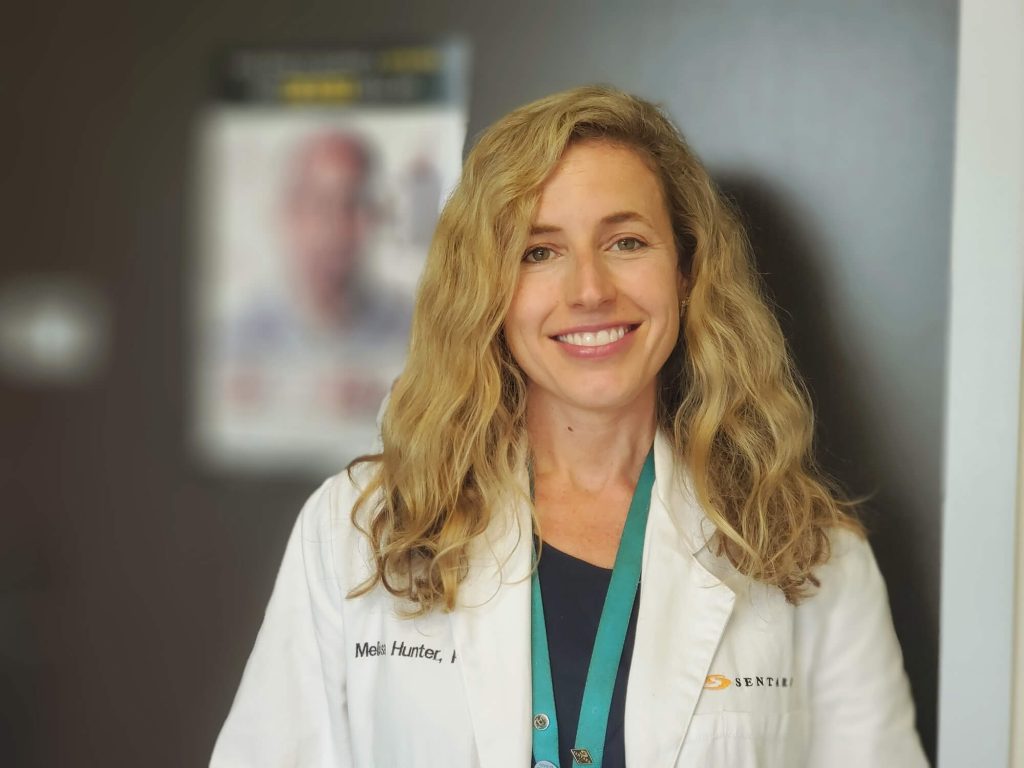
Melissa Hunter, a neuropsychologist with Sentara Neurosciences, has always been fascinated by the mind/body connection.
“Treating and advocating for the ‘whole person’ is an important part of treatment, especially when dealing with dementia patients,” she says. “You can’t treat one without the other because they are so intertwined,” she explains.
Melissa and her fellow team members have spent years developing the neuropsychology program, designing protocols and treatment plans for a variety of dementia presentations. Their team provides extensive evaluations, sometimes lasting up to seven hours, that include family and client perspectives, medical tests, imaging, and other diagnostic tests.
“We look for Alzheimer’s, other forms of dementia and even medical conditions that are the root cause of the dementia and can be treated.”
Melissa cites the support system her team has built as a key part of their ability to positively impact the prognosis for future patients in our communities. Sentara patients and neurology providers have taken part in clinical trials testing Alzheimer’s medications for the past eight years.
“This can be draining work at times and being able to share experiences and pick each other up is something I really value,” she says. “Participating in clinical research trials for diseases like Alzheimer’s gives us hope that we may be able to change the outcomes in the future. I am so proud to be a small part of a team that makes such a difference in our community.”
Melissa’s husband, Thomas, is a physician assistant and recently joined her in 2021 after many years in emergency medicine. The couple has three young children and has enjoyed living in the Hickory area of Chesapeake. Greenbriar Farms is one of their favorite spots to exercise, let the kids play and grab a bite to eat.
Melissa Hunter, a neuropsychologist with Sentara Neurosciences, has always been fascinated by the mind/body connection.
“Treating and advocating for the ‘whole person’ is an important part of treatment, especially when dealing with dementia patients,” she says. “You can’t treat one without the other because they are so intertwined,” she explains.
The Sentara Healthcare team is nearly 30,000 people strong, all working with a unified objective to create an environment of health and healing for our patients. Join us today.